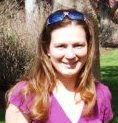
Climb your way to success! The Basic facts ladder is a tool to assist your Basic facts knowledge. This progression is to help you with the next learning step. Ask your grown-up to help you, then I'll do checks with you back at school.
Have fun climbing the ladder, look ahead and don't be scared of heights.
Stage 7
57. Divisibility rules for 4, 6, 8
56. Divisibility rules for 2, 3, 5, 9, 10
55. Simple powers of numbers up to 10. eg 5 to the power of 2 = 25
0. 5 to the power of 3 = 125
54. Square numbers to 100 and corresponding roots eg 7 to power of 2 = 49.
Square root of 49 = 7
53. Common factors of numbers to 100 eg of 48 and 64 = 1,2,4,8,16
52. Least common multiples of numbers to 10 eg 24 is LCM of 6 and 8
51. Fractions – decimals - % eg 75% = 0.75 = ¾
50. Knows all division basic facts
Stage 6
49. Multiplication basic facts with 10’s, 100’s and 1000’s eg 10 x 100 1000 x 10,400 361 x 1,000
48. Division facts for 6 x tables
47. Division facts for 4 x tables
46. Division facts for 3 x tables
45. Multiplication facts for 9 x tables
44. Multiplication facts for 8 x tables
43. Multiplication facts for 7 x tables
42. Multiplication facts for 6 x tables
41. Multiplication facts for 4 x tables
40. Multiplication facts for 3 x tables
39. Subtraction facts from 10-20 eg 16 – 8, 19 – 2, 13 – 4
Stage 5
38. Multiples of 100 that add to make 1000 eg 400 + 600 300 + 700
37. 10 times tables division facts
36. 5 times tables division facts
35. 2 times tables division facts
34. 10 times tables
33. 5 times tables
32. 2 times tables
31. Subtraction from 10 eg 10 – 5 10 – 8
30. Add combinations up to 20 eg 11 + 6 14 + 3
29. Combinations to make 20 eg 15 + 5 14 + 6
Stage 4
28. Multiples of ten (decades) to 100 eg 30 + 70, 40 + 60
27. Ten and facts eg 10 + 4, 7 + 10
26. "tens in decades" e.g.10's in 80, 10's in 30 between 24 and 25
25. Doubles to 10 + 10 eg 9 + 9, 7 + 7
24. Subtraction combinations up to 10 eg 7 – 4, 10 – 2
23. Addition combinations up to 10 eg 4 + 3, 6 +2
Stage 2 -3
22. Doubles that add up to 10 eg 5 + 5 6 + 4
21. Subtract up to 5 eg 4 – 2 3 – 3
20. Subtract from 5 eg 5 – 4 5 – 1
19. Add combinations to 5 eg 1 + 3 3 + 0
18. Combinations to make 5 eg 2 + 3 5 + 0
17. Addition with 5 e.g.5 + 2, 4 + 5
16. Addition combos to make 10 e.g.4 + 6, 3 + 7
15. Recognise patterns to 10 e.g.tens frame patterns
Stage 0-1
14. Say number before up to 10 eg -7, -9, -10
13. Say number after up to 10 eg 5-, 8-, 7-
12. Say number before up to 5 eg -3, -4, -1
11. Say number after to 5 eg 4-5, 3-4
10. Order number cards eg 0-10
9. Write numerals 0 – 10 correctly
8. Count backwards from 10
7. Tens frame patterns to 10
6. Recognise numerals to ten
5. Finger patterns to 10
4. Recognise numerals to 5
3. Know dice patterns to 6
2. Finger patterns to 5
1. Count forwards to 10



